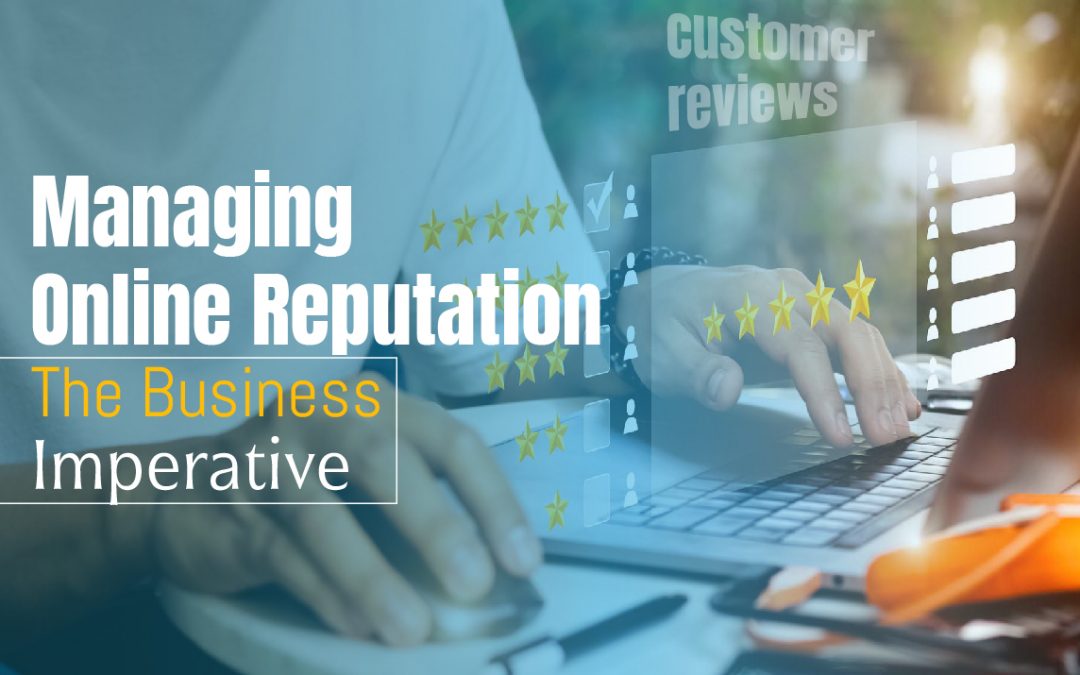In today’s digital age, a company’s reputation is no longer solely shaped by word-of-mouth or traditional media. The internet has empowered consumers with the ability to share opinions instantly and globally, making online reputation management a critical aspect of business success. Whether you’re a multinational corporation or a small local business, how your brand is perceived online can significantly impact your bottom line.
The Importance of Online Reputation
Your online reputation is more than just your website or social media presence. It encompasses what customers, employees, and stakeholders say about your business across various online platforms. According to a survey by BrightLocal, 92% of consumers read online reviews when considering a purchase, and 88% trust online reviews as much as personal recommendations. These statistics underscore the pivotal role that online reputation plays in consumer decision-making.
Key Strategies for Effective Online Reputation Management
1. Monitoring Your Digital Footprint
The first step in managing your online reputation is knowing what’s being said about your brand. Regularly monitor social media channels, review sites like Yelp and Google Reviews, and industry-specific forums. Set up Google Alerts for mentions of your company name, products, and key executives to stay informed in real time.
2. Engaging with Your Audience
Proactively engage with your audience on social media and review platforms. Respond promptly and courteously to customer reviews and comments, whether positive or negative. Acknowledge feedback and demonstrate a commitment to addressing customer concerns. Engaging with your audience humanizes your brand and builds trust.
3. Building a Positive Online Presence
Create and curate content that reflects your brand values and expertise. Publish informative blog posts, share industry insights, and showcase customer success stories. Consistently updating your website and social media profiles with relevant content enhances your credibility and authority in your industry.
4. Addressing Negative Feedback
Negative feedback is inevitable, but how you respond can mitigate its impact on your reputation. Take criticism constructively and use it as an opportunity to improve. Respond publicly to negative reviews with empathy and a solution-oriented approach. Encourage disgruntled customers to contact you directly to resolve their issues offline whenever possible.
5. Leveraging Customer Advocacy
Satisfied customers can be your most powerful advocates. Encourage happy customers to leave positive reviews and testimonials. Showcase these testimonials on your website and social media channels to reinforce trust and attract new business. A strong base of loyal customers can help buffer your reputation during challenging times.
Case Studies of Successful Reputation Management
1. Marriott International
Challenge: Marriott International, a global leader in hospitality, faced a significant online reputation challenge when a data breach in 2018 exposed the personal information of millions of guests. This incident posed a serious threat to their brand reputation and trustworthiness.
Strategy:
- Immediate Response: Marriott responded swiftly, notifying affected customers, regulatory bodies, and the public about the breach. They established a dedicated website to provide updates and resources for affected individuals.
- Transparency and Accountability: The company’s CEO issued a public apology, demonstrating transparency and commitment to addressing the issue. They collaborated with cybersecurity experts and law enforcement to investigate and mitigate the breach.
- Enhanced Security Measures: Marriott invested in upgrading their cybersecurity infrastructure and implementing stricter data protection protocols to prevent future incidents.
Outcome:
- Despite the breach, Marriott’s proactive response and transparency helped mitigate reputational damage. They earned praise for their handling of the crisis, maintaining customer trust and loyalty.
2. Amazon
Challenge: Amazon, the e-commerce giant, faces ongoing challenges in managing its vast online reputation due to the sheer volume of customer interactions and reviews across its platform.
Strategy:
- Customer-Centric Approach: Amazon prioritizes customer satisfaction and actively encourages customer feedback through reviews and ratings. They promptly address customer complaints and issues to enhance user experience.
- Seller Accountability: Amazon holds third-party sellers accountable for product quality and customer service. They implement strict guidelines and penalties for sellers who violate policies, ensuring a positive shopping experience for consumers.
- Community Engagement: Amazon engages with its community of buyers and sellers through forums, blogs, and social media channels. They use these platforms to communicate updates, gather feedback, and address concerns in real-time.
Outcome:
- Amazon’s commitment to customer service and seller accountability has contributed to its strong reputation as a trusted online marketplace. Despite occasional challenges, their proactive approach to managing online interactions has reinforced consumer confidence in the platform.
3. Southwest Airlines
Challenge: Southwest Airlines faced a reputation crisis in 2018 when a tragic incident occurred onboard one of their flights, resulting in a passenger fatality. The incident generated extensive media coverage and public scrutiny.
Strategy:
- Immediate Response and Support: Southwest Airlines prioritized the safety and well-being of passengers and crew affected by the incident. They promptly issued a public statement expressing condolences and offering support to those impacted.
- Open Communication: The airline maintained open lines of communication with affected families, regulatory authorities, and the media. They provided regular updates and transparency throughout the investigation process.
- Employee Support and Training: Southwest Airlines invested in training and support for their employees, emphasizing crisis communication and compassionate customer care in challenging situations.
Outcome:
- Despite the tragedy, Southwest Airlines’ empathetic response and commitment to safety earned a commendation from passengers, industry peers, and the public. Their proactive crisis management efforts helped preserve their reputation as a customer-centric airline.
Lessons Learned and Best Practices
These case studies illustrate key principles of effective online reputation management:
- Transparency and Communication: Open and honest communication during crises builds trust and credibility.
- Proactive Engagement: Addressing issues promptly and professionally can mitigate reputational damage.
- Customer-Centric Approach: Prioritizing customer satisfaction and safety fosters long-term loyalty and positive brand perception.
The Future of Online Reputation Management
As technology evolves, so too will the landscape of online reputation management. Stay ahead of trends such as AI-powered sentiment analysis, blockchain-based reputation systems, and the growing influence of social media influencers. Embrace innovation while maintaining a customer-centric approach to reputation management.
Conclusion
Managing your online reputation is not just a defensive strategy—it’s a proactive investment in your brand’s success. By monitoring your digital footprint, engaging authentically with your audience, and leveraging positive feedback, you can build a resilient reputation that attracts customers and strengthens your competitive edge in the digital marketplace.
Remember, your reputation is your most valuable asset. Nurture it carefully, and it will serve as a powerful driver of growth and credibility for your business.











